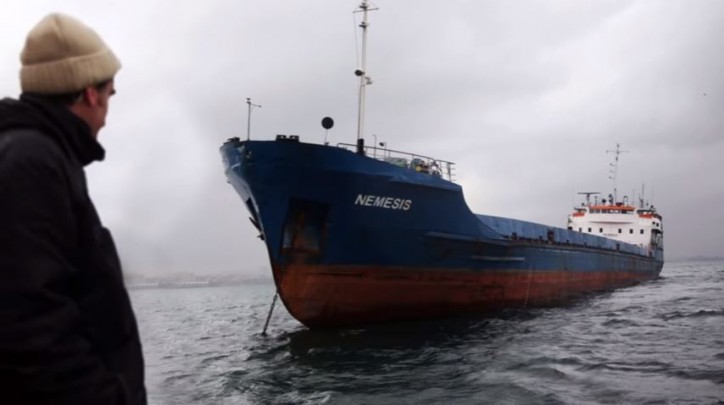In the run up to the International Day of the Seafarer on June 25, 2016, SRI has released a short hard-hitting film designed to raise awareness of the ever present risk of seafarers facing abandonment. Drawing on situations where seafarers were abandoned, the film highlights the inhumane conditions that abandoned seafarers face, and warns seafarers how to avoid being abandoned as well as what they can do if they are abandoned.

Concerns about the blight of abandonment have been the focus of expert tripartite meetings amongst seafarers, shipowners and governments since 2001. These discussions culminated in a proposed amendment to the Maritime Labour Convention agreed in April 2014, which should come into force in early 2017.
Brian Orrell, Chairman of the Advisory Board of SRI said: “The Maritime Labour Convention 2006 is a directory of the entitlements and the rights of seafarers in a number of areas: employment terms, accommodation, catering, welfare, social security. Within that, there is a section on repatriation. There was a view by some in the MLC negotiations that the repatriation arrangements in the MLC covered abandonment and were quite satisfactory on their own. In actual fact they weren’t, because the repatriation requirements in the MLC are related to a number of specific circumstances which do not encompass the abandonment cases that are occurring.”
Deirdre Fitzpatrick, Executive Director of SRI commented: “It is a blot on the industry that in the present day, shipowners can walk away from their responsibilities and be unaccountable for abandoning their crew. Such behaviour has been condemned by all respectable sectors of the industry and it is not before time therefore that an amendment to the Maritime Labour Convention will put in place a system to protect seafarers from the worst consequences of being abandoned. Hopefully the amendment – which goes beyond the current MLC provisions on financial security for repatriation – will have a real impact and make reports of abandoned crews a thing of the past.”
Quotes From The Film:
“We always have to hope that people are not going to run away from their responsibilities. But if that happens, then at least we need to have a system where you’re going to have someone who’s going to take that responsibility. And the MLC is going to provide that; it’s going to provide a mechanism so that if they are abandoned by their employer, by the shipowner, then there’s others who will step in and take the responsibility be it port state or be it flag state” Jacqueline Smith, Maritime Coordinator, International Transport Workers’ Federation
“The MLC overlooked a number of consequences that are severally impacting seafarers that find themselves in the situation of abandonment. So this is why amendments were tabled in 2014 and adopted in order to properly and comprehensively regulate protection of seafarers against abandonment.”
“The ILO wants to achieve effective protection of every single seafarer in the world who finds himself or herself in a situation of abandonment.” Corinne Vargha, Director, International Labour Standards Department, International Labour Organization
“The Special Tripartite Committee was there to pick up where the MLC stopped. When the MLC entered into force in 2013, it dealt with repatriation but it did not deal with abandonment.”
“The amendments that were done in 2014 could be a turning point. We hope that the industry will respond appropriately in dealing with the amendments that should give the seafarers the security that they need to ensure that they are repatriated.” Dave Heindel, Chair, Seafarers Section, International Transport Workers’ Federation
“The industry has to globally implement it and the indication is there’s an agreement between us, the ship owners and the other parts of the industry that it’s not good enough that seafarers are left in these kind of situations. This solution must be delivered by all parties on a global level in the interests of our very proud industry.” Stephen Cotton, General Secretary, International Transport Workers’ Federation
Source: Seafarersrights.org